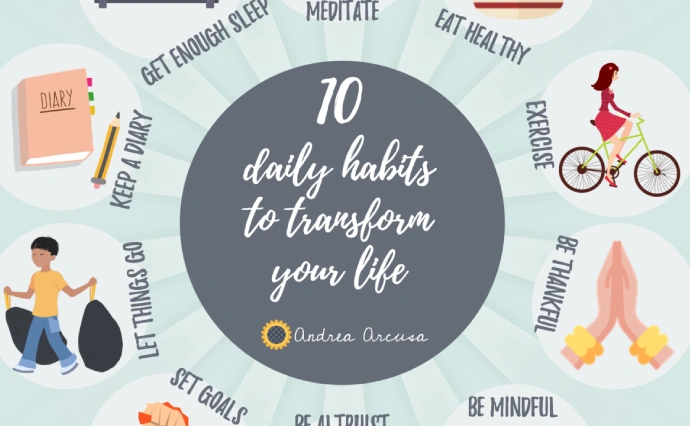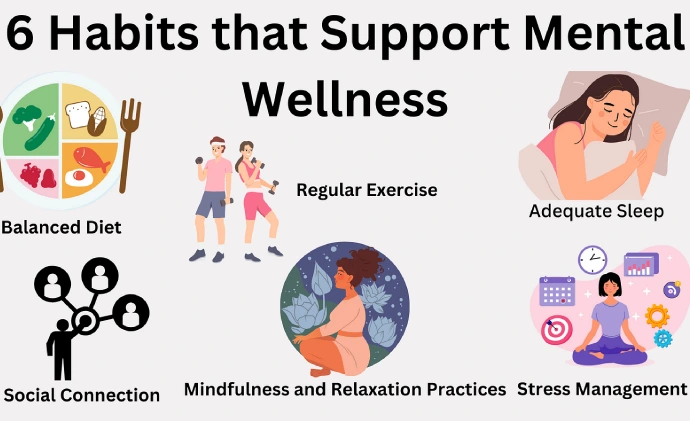Introduction to the Path to Better Health
Everyone wants to live a healthy life, but the Path to Better Health is not always easy. It requires making good choices every day. In this section, we will look at what it means to be healthy and how you can start your journey on the Path to Better Health.
Understanding Health Goals on the Path to Better Health
The first step on the Path to Better Health is setting clear health goals. Goals help you know where you are going and keep you on track. Without goals, it can be easy to lose focus or give up.
Your health goals can be big or small. For example, a big goal might be losing weight or lowering your blood pressure. A small goal might be walking for 30 minutes every day. Whatever your goals are, they should be realistic and achievable. This means setting goals that you can reach with time and effort.
It is also important to write down your goals. When you write them down, it makes them more real and helps you stick to them. You can even share your goals with a friend or family member. This way, they can support you and help you stay motivated.
The Foundation of Healthy Living on the Path to Good Health
Living a healthy life is not just about setting goals. It is also about building a strong foundation. This foundation includes eating well, exercising, and taking care of your mental health. These three things work together to help you feel your best.
Eating Well: Eating healthy foods is one of the most important things you can do on the Path to Better Health. You should aim to eat a balanced diet that includes fruits, vegetables, whole grains, and lean proteins. Try to avoid junk food, sugary drinks, and too much processed food.
Exercising Regularly: Physical activity is another key part of a healthy lifestyle. You do not need to go to the gym every day, but you should aim to be active. This could mean taking a walk, riding a bike, or even dancing at home. Exercise helps keep your body strong and your mind sharp.
Mental Health: Finally, do not forget about your mental health. Stress, anxiety, and depression can all affect your physical health. Make sure you take time to relax and do things you enjoy. Practicing mindfulness or meditation can also help reduce stress.
Long-term Benefits of a Healthy Lifestyle on the Path to Good Health
When you follow the Path to Better Health, you will start to see changes over time. At first, the changes might be small, like having more energy or sleeping better. But as you stick to your goals and healthy habits, you will notice bigger improvements in your overall health.
Some of the long-term benefits of a healthy lifestyle include:
Lower risk of diseases like heart disease and diabetes
Improved mental clarity and mood
Stronger muscles and bones
A longer, more fulfilling life
In the end, the Path to Better Health is a journey. It may take time and effort, but the rewards are worth it. By setting health goals and building a solid foundation, you are taking the first steps toward a better, healthier life.
Remember, your health is in your hands, and every small step counts. Keep moving forward on your Path to Better Health, and you will see the positive changes in no time.
The Role of Nutrition in the Path to Better Health
Eating the right foods is a big part of walking on the Path to Better Health. What you eat affects how your body feels, how much energy you have, and even your mood. In this section, we will talk about how nutrition plays a key role in keeping you healthy.
Building a Balanced Diet on the Path to Better Health
A balanced diet is the best way to stay on the Path to Better Health. But what does a balanced diet look like? It means eating the right amounts of different types of foods. These include fruits, vegetables, whole grains, lean proteins, and healthy fats.
Fruits and Vegetables: These are full of vitamins, minerals, and fiber. They help your body stay strong and protect it from getting sick. Try to eat a variety of colorful fruits and vegetables every day. The more colors, the better for your health.
Whole Grains: Foods like brown rice, oats, and whole-wheat bread are good examples of whole grains. They give your body energy and help your digestion.
Lean Proteins: Proteins are important for building muscles and repairing tissues in your body. Lean proteins, like chicken, fish, beans, and nuts, are healthy options. Try to avoid fatty meats and fried foods.
Healthy Fats: Not all fats are bad. Healthy fats, like those found in olive oil, avocados, and nuts, are good for your heart and brain.
Importance of Portion Control on the Path to Good Health
Eating the right foods is important, but so is eating the right amount. Even healthy foods can cause problems if you eat too much of them. That’s why portion control is key to staying on the Path to Better Health.
To control your portions:
Eat slowly and listen to your body when it says you’re full.
Use smaller plates to help you eat smaller amounts.
Avoid eating when you are bored or stressed.
By controlling how much you eat, you will have more energy, feel better, and maintain a healthy weight. This helps you stay on track with your health goals.
Hydration and Its Impact on Health
Another important part of the Path to Better Health is staying hydrated. Your body needs water to work properly. Water helps your body digest food, clean out toxins, and keep your skin healthy.
To stay hydrated:
Drink water throughout the day, even if you’re not thirsty.
Avoid sugary drinks like soda and juice, as they can add extra calories.
Carry a water bottle with you to remind yourself to drink more water.
By eating the right foods and drinking plenty of water, you will be on the right Path to Better Health.

Physical Activity for a Healthier Life on the Path to Better Health
Exercise is a key part of staying healthy and following the Path to Better Health. Being active every day helps your body stay strong, your heart healthy, and your mind sharp. In this section, we will talk about how exercise can improve your health and how to create a fitness routine.
Benefits of Regular Exercise on the Path to Good Health
Regular exercise offers many benefits on the Path to Better Health. It helps your body in several ways:
Improves Heart Health: Exercise strengthens your heart, which pumps blood throughout your body. A strong heart lowers your risk of heart disease.
Boosts Mood: When you exercise, your body releases chemicals called endorphins. These chemicals make you feel happy and reduce stress.
Helps Maintain a Healthy Weight: Exercise burns calories, which helps you manage your weight. When you combine exercise with healthy eating, it becomes easier to stay at a healthy weight.
Increases Energy Levels: Even though exercise can make you feel tired right after, it actually gives you more energy in the long run. You will feel more alert and active throughout the day.
These benefits are great for your overall well-being and help you stay on the Path to Better Health.
Types of Exercises on the Path to Better Health
There are different types of exercises you can do to stay on the Path to Better Health. It’s important to mix them up to get the best results:
Cardio Exercises: These exercises make your heart beat faster and help improve heart health. Some examples are walking, running, swimming, and biking. Even a simple 30-minute walk every day can make a big difference.
Strength Training: These exercises help build muscles and keep your bones strong. Lifting weights, doing push-ups, and squats are examples of strength training.
Flexibility Exercises: Flexibility exercises, like stretching or yoga, help keep your muscles flexible and prevent injuries. Being flexible also helps with balance and movement.
Creating a Sustainable Fitness Routine on the Path to Better Health
To stay active and healthy, it’s important to create a fitness routine that works for you. Here are some tips to build a routine:
Start Small: If you’re new to exercise, start with short sessions, like 10 or 15 minutes a day, and gradually increase the time.
Find Activities You Enjoy: If you enjoy your exercise, you’re more likely to stick with it. Try different activities, like dancing, swimming, or cycling, until you find one you love.
Be Consistent: It’s better to exercise a little bit every day than to do a lot only once a week. Consistency is the key to staying on the Path to Better Health.
By exercising regularly and finding activities you enjoy, you can stay fit and healthy on the Path to Better Health.
focused, and feel happy. In this section, we will talk about how you can improve your mental health.
FAQ
Q: What is the Path to Better Health?
The Path to Better Health involves making positive lifestyle choices, such as eating well, exercising regularly, and caring for mental well-being.
Q: How can I improve my mental wellness on the Path to Better Health?
You can improve mental wellness by managing stress, practicing mindfulness, and building strong relationships with family and friends.
Q: What are some exercises to stay on the Path to Better Health?
Cardio exercises like walking and swimming, strength training, and flexibility exercises like stretching or yoga can all help you stay on the Path to Better Health.
Q: Why is nutrition important for the Path to Better Health?
Nutrition plays a key role in maintaining overall health by providing the body with essential vitamins, minerals, and nutrients needed for energy and strength.
Q: How does stress affect the Path to Better Health?
Too much stress can negatively affect both mental and physical health. Managing stress is important for staying on the Path to Better Health.
Q: What role does hydration play on the Path to Better Health?
Staying hydrated is crucial for bodily functions like digestion and toxin removal. Drinking enough water helps keep you on the Path to Better Health.
Q: Can relationships affect your Path to Better Health?
Yes, positive relationships help support mental health and well-being, keeping you happier and on track for the Path to Better Health.
Conclusion
Following the Path to Better Health involves making small, consistent changes to your daily habits, including proper nutrition, regular physical activity, and mental wellness practices. By eating a balanced diet, staying active, and managing stress, you can improve both your physical and mental well-being. These changes not only help you feel better in the short term but also protect your health in the long run, keeping you on track for a healthier, happier life.
Remember, the journey to better health is not about perfection but about progress. Every step you take, whether it’s adding more vegetables to your meals, going for a daily walk, or practicing mindfulness, brings you closer to your goals. By making mindful decisions and staying committed to your well-being, you will stay on the Path to Better Health and enjoy a fuller, more balanced life.


